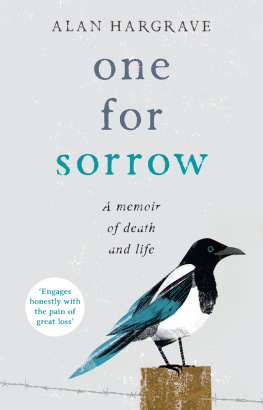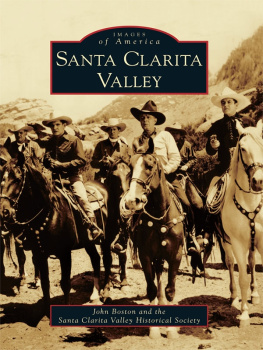B u r d ens b y W a ter
An unintended memoir
Alan Rifkin
Brown Paper Press Long Beach, CA

Burdens By Water Copyright 2015 by Alan Rifkin.
All rights reserved. No part of this publication may be reproduced, stored in a retrieval system, copied in any form or by any means, electronic, mechanical, photocopying, recording or otherwise transmitted without written permission from the author.
Brown Paper Press
6475 E. Pacific Highway, #329
Long Beach, CA 90803
Cover by DR.ME
Interior by Gary A. Rosenberg
Library of Congress Control Number: 2015954709
ISBN: 978-1-941932-04-9 (print)
978-1-941932-05-6 (ebook)
Versions of Boys in the Hoods, Swimming with Dolphins, and Thin Ice appeared in Details magazine. Versions of Pool Man, The Metaphysics of Painting, Measure the Universe, and The Los Angeles Writing Club appeared in LA Weekly. Versions of The Metaphysics of Hang Time and Wave Theory appeared in LA Style magazine. A version of Consider the Richardsons appeared in Image: A Journal of the Arts and Religion. A version of E Luxo So (Its Only Luxury) appeared in Black Clock. A version of Requesting the Toronado appeared in California magazine. A version of Writing in the Dust appeared in The Los Angeles Times Magazine.
.
To the memory of Herbert Rifkin, Phyllis Rifkin, Susan Rifkin, and Bob LaBrasca
Contents
Wave Theory: A Prologue
1. Boys in the Hoods
2. Swimming with Dolphins
3. Pool Man
4. The Metaphysics of Hang Time
5. The Metaphysics of Painting
6. Measure the Universe
7. Consider the Richardsons
8. The Los Angeles Writing Club
9. Thin Ice
10. E Luxo So (Its Only Luxury)
11. Writing in the Dust
12. Requesting the Toronado
Acknowledgments
About the Author
Prologue
Wave Theory
Somewhere toward the end of a yearlong struggle to quiet our upstairs neighbor, the lead singer of The Nymphs, my then-girlfriend brought home an electronic noise-buster. This was the industrious girlfrienda clever shopper and a determined person besides. Once, during her sleep, she snapped all the covers over her head and announced (her exact words): You have to be crafty to pass Spanish One. She opened the new carton with a gleam.
But the project was only half successful. There were three dial settings on the noise-buster, each a thin wall of static. Waterfall was a roar. Rain was a hiss. Oceanthe setting she chosealternated between the two, impossibly symmetrical, bereft of conviction, like an audition in a foreign tongue (Roar? Hiss? Roar? Hiss?), and it made me want to kill myself. It was a fine simulation of how waves sound, on planets that are shaped like cubes. Sue, for the record, slept like a castaway. She was from Knoxville, Tennessee.
I am from the San Fernando Valley, and Im partial to the real rhythm of waves. Just how partial impresses me, because Im rarely in the water anymore. A couple of things explain the depth of the memory. First, waves are worth remembering, a healing sort of memory. Second, its hard to forget the motion of water after being overpowered by it six or eight hours a day, seven days a week, three or four summers running, a level of plain repetition that I think goes to the heart of the healing, though maybe only if you need as much healing as I do.
I remember those summers as a kind of campaign: The water so constant an opponent it invaded your sleep (try holding the bed still after eight hours of bodysurfing). And the evenings were an odd lull, a remission in the progress of a bout. Until finally the ocean displaced everything you could think of that wasnt the ocean.
Which is not a bad bargain: salty lips/nappy leg hair as the cost of clearing your head of foolishness. The only other things that have talked sense to me that way since are meditation and very strong sex. But at some level of abandonment the exact method is irrelevant, which is why everyone interchanges metaphors about all three.
My own most intense summers coincided with a presexual view of the world. When I was fourteen, only one guy in our crowdbowlegged Bobby Weiser, small but imperially tough, tossing car keys to himself barefooted on the oil-spotted garage floorhad a girlfriend. The romance was all of ours, by proxy: They were our royal couple. And Weiser, too, was inexperienced, though this gave the relationship its air of teenage heroism. Once, Maries bathing suit slipped in the crash of a wave, exposing one sad drenched nipple, and more than an hour later, she still had her face in her hands and was leaning against Weiser, who was whispering, Nobody saw. Id never seen my parents treat each other like that.
It was always the two of them out front, four shoulders under Weisers towel, leading us down the bluff on the illegal path, dirt-caked feet kicking pebbles to the highway. Below, the ocean loomed like ill fatebecause of our own sense of melodrama, the fear of battle, and the ritual of the long approach. I liked the buildup. I dreamed fright movies of the unwarm morning air, the fog near the coast, the light, bluer and more grim than Valley light, on the Santa Monica Freeway to Pacific Coast Highway.
The cure for all this apprehension, of course, was the ocean itself. And there are many ways to describe the education imparted by waves, but the one that leaps to mind is that they were a big pounding threat at the beginning of the day and a whitewater joke at the end of it, their pratfall and yours together; they left you stupid and reeling, with the low five-oclock sun blasting the whiteheads, and seagulls descending, and all of us hungry, weak, and buzzed, and the beach empty of anyone older.
Is it redundant to think of waves as a series? First you have to wait for a set. And then swim out to the last wave of the set, which is the biggest. There are legends about the ninth waves of sets, and bigger legends about ninth waves of ninth sets, all diffracting in an infinity of excuses to stay in the water: Forever you run at one more wave. The far-off ones seem to build in slow motion, manufactured behind smaller decoys, haughty and monumentally steep, still adding inches and teeming at the crest and seemingly unreachable across a sudden expanse. And more or less wildly you charge the face, elbows high, scooping water with both hands for traction, finally to be swept upward, swimming hard out in front of the curl, eyes fixed downward to take you through the drop. Rocketing forward then. Scattering small kids in inner tubes.
Recovering, laughing, pulling up trunks in the shallow playground where the backwater crashes like cymbals against baby waves. Trudge back out, hug your own goose-bumped arms, and wait for the next visitation/mirage.
The object, in a weird way, was self-forgetting. And in that department I may have been a specialist: Just as the rest of the gang played at adulthood (with pecking orders and anatomical jokes, loving the transparency of our own posturings), I was, in many ways, a pretender to the group: clearly the shyest and smallestand so nicknamed, for the entire summer of 1969, The Instigator. (A firecracker explodes in a trashcan, and a half-dozen fingers point at me.) I didnt kid myself about being a leader, nor did I mind being awed by tall waves. Or even just good waves. Two days stand out. There was the Perfect Day in Newport Beach that my friend Scott insists cannot be described except by a two-panel cartoon, the first panel showing two guys in a wave, and in the second panel theyve carved a groove back to their towels, hands still tented an arms length before them. And there was this one awful pilgrimage to the Wedge, just the name of which had me all but paralyzed on the trip down, a place where storm tides push against a jetty and form ten- or twenty-foot waves that break in waist-deep water. I pulled out of every single wave before it broke, to my lasting disgracea debacle that, in retrospect, segued directly to a different kind of high-school career entirely: one of false courage and cigarettes and beer, and scoffing at the whole world of genuine effort and risk.
Next page








